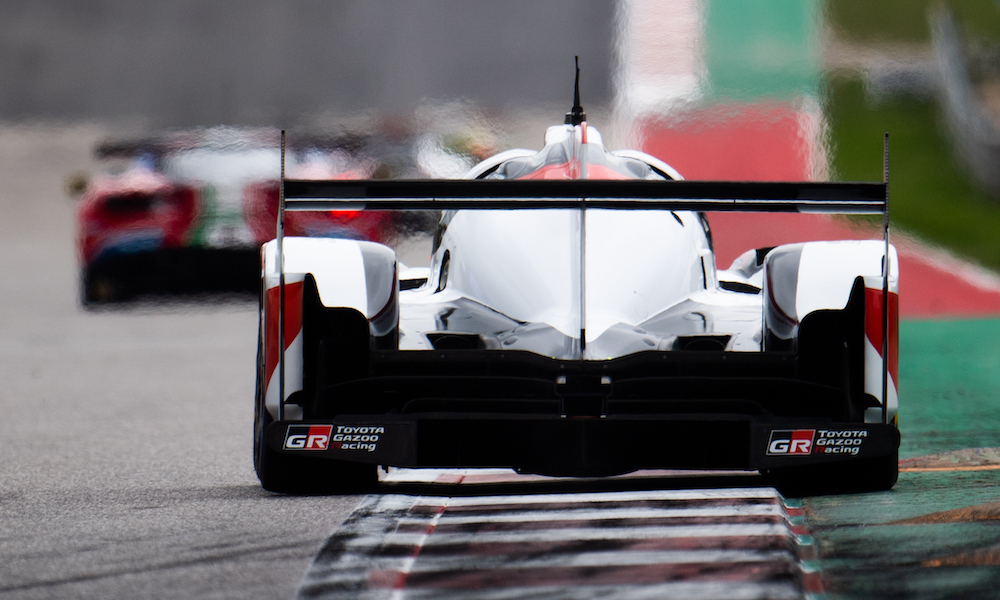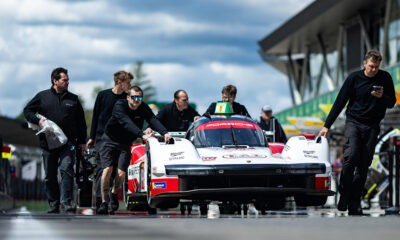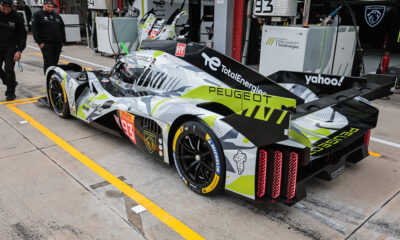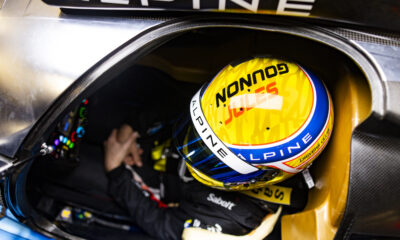
Photo: Jamey Price/Toyota
Delaying the debut of Le Mans Hypercar will likely benefit the manufacturers that are aiming to enter, according to FIA World Endurance Championship CEO Gerard Neveu.
The WEC’s decision to postpone its ninth season by six months as a direct result of extending the current 2019-20 campaign means the LMH class is now set to arrive next March rather than this September.
Neveu recently told Endurance-Info that the redrawn schedule could help the prospective LMH manufacturers that are facing time pressures to develop their brand-new cars.
In turn, he doesn’t expect there to be a need to bolster the grid with IMSA DPi cars for a single year before the introduction of the global LMDh category the season after next.
Toyota and Glickenhaus are aiming to be on the grid for the start of LMH next March, but it’s unclear how many other participants there will be in the top class.
“Next season we should be welcoming Le Mans Hypercar as the new top category in the WEC,” said Neveu.
“The delay until the start of season nine to March 2021, and the fact that we will revert to a traditional season to be held in just one calendar year, is likely to benefit several of the manufacturers planning to compete in LMH.
“We don’t envisage that IMSA’s current DPi cars will compete in that category, just as no current DPi entrant has expressed a wish to come and race in the WEC.
“The discussions between the ACO and IMSA on the new LMDh category of car – a platform which can bridge both championships and which will start in 2022 – are continuing regularly and extremely positively.
“The regulations are almost finalized, and these are the cars we will ordinarily see in the future from 2022 onwards. In the very near future, you will hear more on this.”
Whilst clear on the trajectory for LMH, Neveu suggested that all options are open regarding possible format changes in other areas for the 2021 season.
Like all other sporting competitions, the WEC has been heavily affected by the exceptional circumstances created by the coronavirus pandemic.
The series has canceled four of its planned races this year as a consequence of the health crisis, while the rescheduled Total 6 Hours of Spa and 24 Hours of Le Mans remain influenced by updates to Belgian and French government measures.
“First of all, we cannot assume that everything will go back to how it was before this global pandemic,” explained Neveu.
“There is absolutely no doubt that motorsport will continue to hold a valid place as both an industry and a sport, but how we organize or run events is certainly going to change and therefore evolve.
“The health crisis and its subsequent effects on the worldwide economy will be felt for some time, and that’s something we have a responsibility to consider in detail.
“We are spending this time looking at every single aspect of our business and what we can do differently.
“Whether this is the number of races in a season, or the length of a race weekend, or how we run the events…all these areas could possibly take on a different format.
“At the end of each season we re-evaluate, we discuss with our team internally, our competitors and partners, and then we make our decisions.”
New Schedule Brings a Mix of Pros and Cons
The switch to a calendar year schedule is likely to have a mix of advantages and disadvantages for independent outfits, according to one GTE-Am team boss.
TF Sport team principal Tom Ferrier explained that the WEC winter season worked well for his company from a logistics point of view, but suggested that the switch to a new format could make the series more attractive to new entrants.
“From a selfish point of view, it’s always been hard to combine lots of other championships if you’re racing on the same calendar timeframe,” he told Sportscar365.
“The beauty of WEC is that it is has gone over the winter: we’ve only ever had Spa, Le Mans and Silverstone within the normal European season calendar.
“But equally, it might encourage more new drivers into it. If an Am driver is going to do an ELMS season from April to October, it’s very hard for them to commit to spending more millions of pounds starting in August, when they haven’t even finished one season yet.
“I think it might open a few new drivers up to the WEC, to make it fit in with the rest of the world a bit more.”
David Bristol contributed to this report.






















